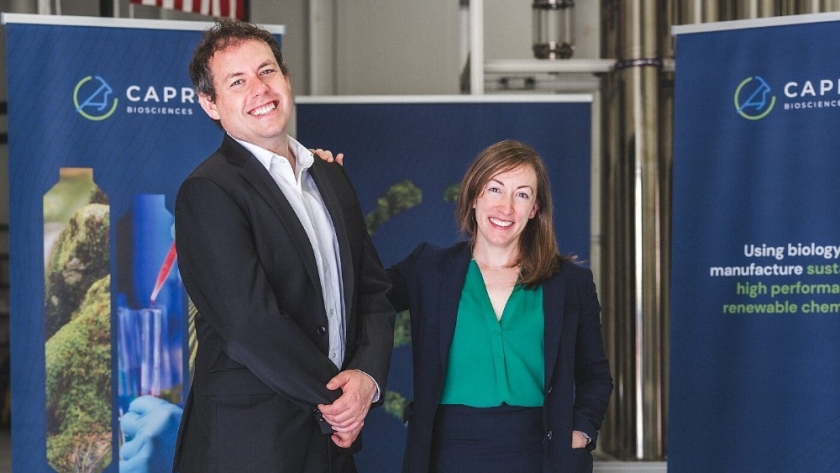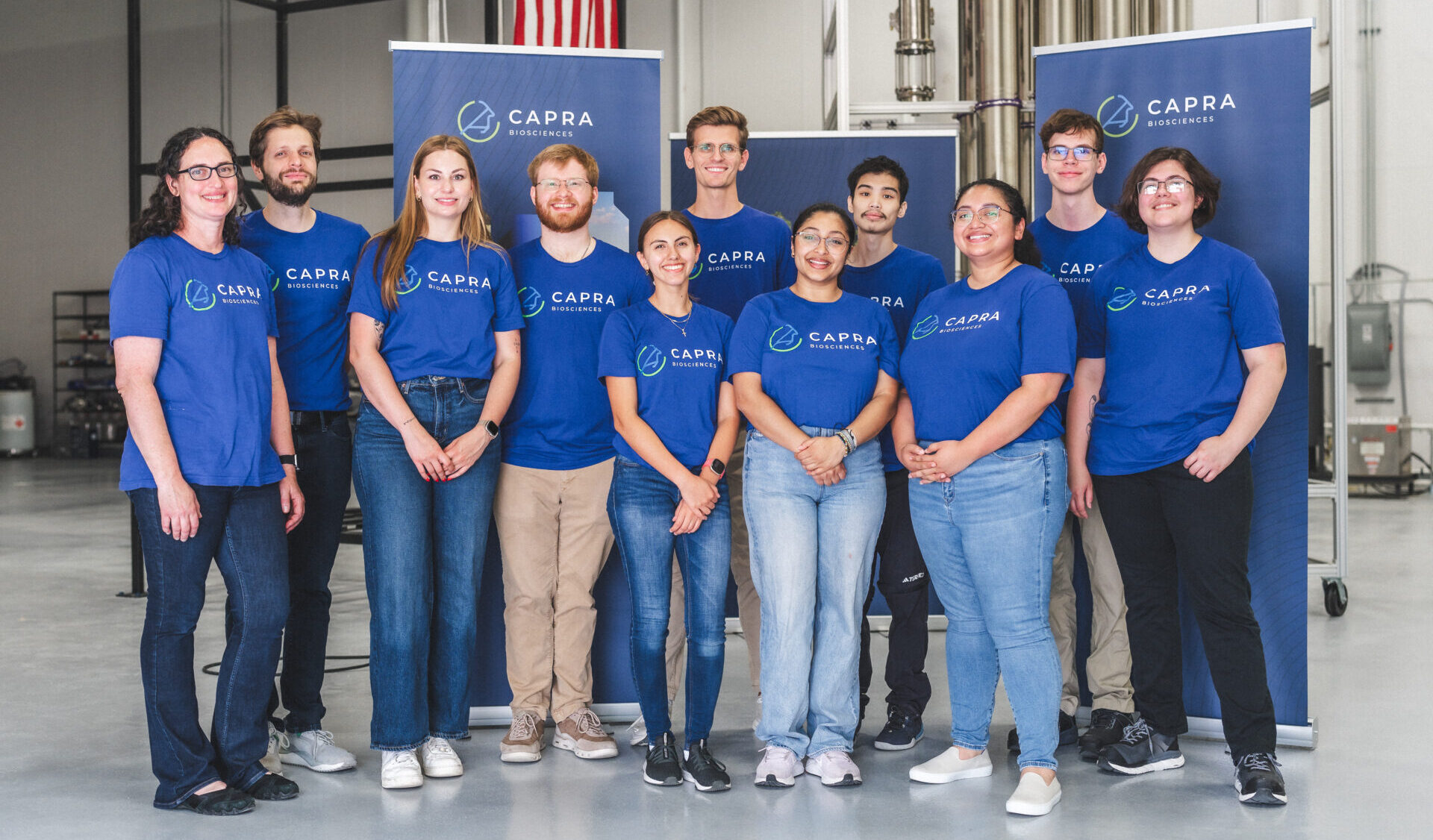
By Agroempresario.com
Retinol, a vital form of vitamin A widely used in cosmetics and personal care products, has traditionally been manufactured through petrochemical synthesis, primarily in China and Europe. However, Virginia-based startup Capra Biosciences is pioneering a novel biomanufacturing approach that could challenge this status quo by producing bio-based retinol competitively, sustainably, and at scale.
Retinol is prized for its ability to reduce wrinkles, fine lines, and improve skin texture and tone, making it a highly valuable ingredient in the $1.5 billion global market. While bio-based alternatives exist—such as DSM Firmenich’s technology (developed after acquiring it from Amyris) and Conagen’s bioretinol esters—the cost of production remains a key hurdle in gaining substantial market share.
Dr. Andrew Magyar, Chief Technology Officer at Capra Biosciences, explains the shift in company focus that led to this innovation. Initially, Magyar and cofounder Dr. Elizabeth Onderko explored biomanufacturing lubricants but recognized that the scale and cost structures needed were prohibitive. Retinol, on the other hand, being a high-value ingredient used in low concentrations, presented a more viable opportunity.
Capra Biosciences’ technology centers on using solvent-tolerant bacteria and yeast capable of converting industrial side streams such as thin stillage (a byproduct of ethanol production), glycerol (from biodiesel production), and brewers’ waste into retinol efficiently. This use of low-cost, abundant feedstocks significantly reduces production costs compared to traditional petrochemical synthesis.
An innovative aspect of Capra’s process is its continuous production capability. Unlike conventional methods that require harvesting and crushing cells to extract retinol—a costly and labor-intensive step—Capra’s microbes tolerate organic solvents that “wash” the retinol out without killing the cells. This allows cells to be returned to the bioreactor to resume production, dramatically improving efficiency.
Moreover, Capra employs advanced nanofiltration techniques to enhance downstream processing efficiency. Given that downstream processing can account for over 50% of production costs in biomanufacturing, this advancement is critical to making bio-based retinol economically competitive.

Capra’s bioreactor setup consists of modular, six-inch-wide columns each holding around 1,000 liters. This design favors scaling out by replication rather than scaling up to larger, riskier reactors—a common bottleneck in biomanufacturing scale-up.
Dr. Magyar highlights this as a key advantage: “Scaling up to ever-larger tanks introduces uncertainty and risk. Our modular approach allows predictable expansion, faster deployment, and flexibility to produce multiple products simultaneously, adapting dynamically to market demands.”
Located in Sterling, Virginia, Capra’s 10,000-square-foot pilot plant is already operational, allowing for validation of the process at near-commercial scale.
Consumer demand for sustainable, bio-based ingredients in personal care is growing, but companies remain price-sensitive. “Most customers aren’t willing to pay a green premium outright,” Magyar notes, “so our bio-based retinol must compete on price while delivering sustainability benefits.”
Beyond consumer preference, a crucial driver for interest is supply chain resilience. Major companies increasingly seek validated, domestic sources of critical ingredients to avoid disruptions associated with global petrochemical supply chains. Capra’s process, utilizing locally sourced industrial byproducts, offers such security.
Capra envisions operating bioreactors themselves but also remains open to partnerships and joint ventures with established market players. This B2B sales model leverages existing distribution channels and customer networks, enabling faster market penetration.

Capra plans to produce significant sample quantities of bio-based retinol from its pilot plant this year to build customer interest and secure initial sales. These early successes will support fundraising efforts for larger-scale commercial facilities.
Furthermore, Capra is exploring expanding its biomanufacturing platform to produce active pharmaceutical ingredients (APIs), tapping into the growing domestic onshoring movement in pharmaceutical production.
Dr. Magyar remarks, “Traditional biomanufacturing relies on bigger and bigger tanks, leading to long, costly build-out timelines. Our modular system redefines this paradigm, offering a more agile, scalable approach.”
